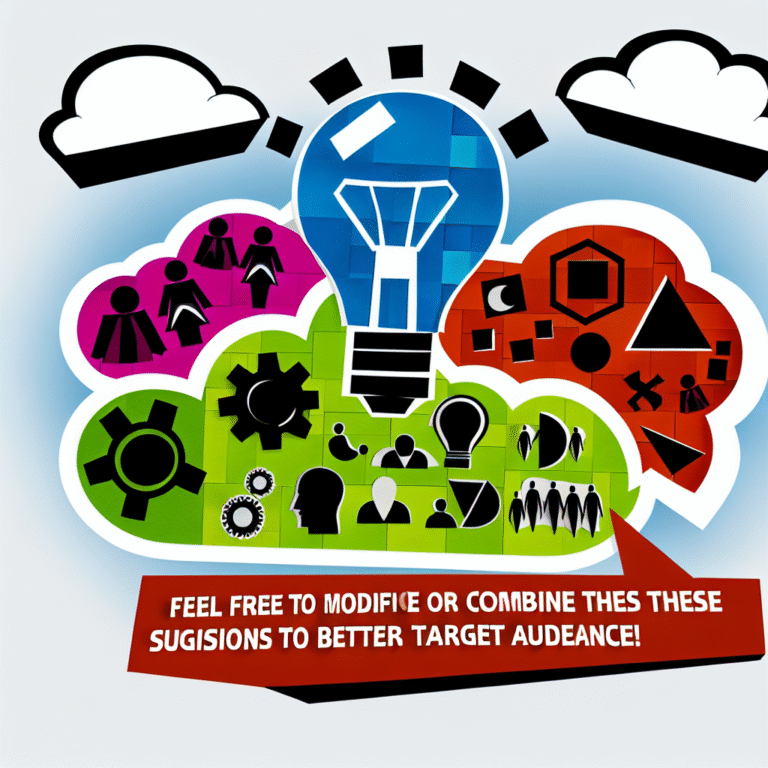
Introduction
In today’s competitive job market, succeeding in interviews is more crucial than ever. As applicants face a barrage of questions, the real challenge often lies in transforming those queries into a display of confidence and capability. The phrase "From Questions to Confidence: Unlocking Effective Interview Techniques" encapsulates a journey many candidates embark upon—one that can significantly impact their professional lives.
Why Interview Skills Matter
Mastering the art of the interview is essential not just for job seekers but also for companies searching for top talent. With studies suggesting that over 70% of employers cite poor interview performance as a reason for rejecting candidates, honing effective interview techniques can make the difference between landing a dream job and missing out.
In this comprehensive guide, we will explore actionable strategies, insights, and case studies to empower you, whether you’re a seasoned professional or entering the job market for the first time. Let’s uncover how to navigate the path from questions to unwavering confidence.
Understanding the Interview Landscape
The Evolving Role of Interviews
Interviews have grown beyond just a simple Q&A session. Today’s interviews are multi-faceted, involving behavioral assessments, technical questions, and even group dynamics. Understanding this landscape is paramount for any candidate.
| Type of Interview | Description |
|---|---|
| Behavioral | Focuses on past behavior to predict future actions. |
| Situational | Deals with hypothetical scenarios relevant to the role. |
| Technical | Tests specific knowledge or skills related to the job. |
| Group | Assesses collaboration and communication skills. |
Rethinking your approach to these various formats can propel you from mere preparedness to genuine confidence, as you become adept at handling any situation that arises.
Developing Effective Interview Techniques
The Foundation of Confidence
1. Research and Preparation
Understanding the company and its culture is crucial. Start by exploring their website, social media, and news articles to get a feel for their values and recent developments. This knowledge will enable you to tailor your responses effectively.
Case Study: Sarah’s Research Advantage
Sarah, who was applying for a marketing role at a tech startup, discovered through her research that the company valued innovation. She tailored her answers in the interview to reflect her creative thinking, which resonated with the interviewers and ultimately resulted in a job offer.
2. Mastering the STAR Technique
Using the STAR (Situation, Task, Action, Result) technique can help you structure your responses to behavioral questions. This method ensures that you present concise and impactful answers.
| Element | Description |
|---|---|
| Situation | Set the context for your story. |
| Task | Explain the challenge or responsibility you faced. |
| Action | Describe what you did to address the situation. |
| Result | Share the outcome of your actions. |
Case Study: John’s STAR Success
In an interview for a management position, John effectively employed the STAR technique. He recounted a challenging project where his leadership boosted team morale, demonstrating not just his capability but also his result-oriented mindset. His strategic storytelling left a lasting impression, showcasing the power of structured responses.
3. Body Language and Presentation
Non-verbal cues often speak louder than words. Maintaining eye contact, a firm handshake, and an open posture can convey confidence.
Table: Key Body Language Tips
| Action | Impact |
|---|---|
| Eye Contact | Shows engagement and sincerity. |
| Smile | Establishes warmth and approachability. |
| Open Posture | Conveys confidence and receptiveness. |
| Nodding | Indicates active listening. |
These subtle elements add layers to your presence, often making the difference between a memorable candidate and a forgettable one.
4. Practicing with Mock Interviews
Engaging in mock interviews can alleviate anxiety and enhance performance. This practice allows you to simulate the interview experience, making you feel more comfortable when the real deal arrives.
Case Study: Emily’s Mock Interview Experience
Emily was nervous about her upcoming interview for a finance role. By participating in several mock interviews with friends, she identified her weak spots, polished her answers, and ultimately walked into her actual interview armed with confidence. The result? An offer letter that exceeded her expectations.
5. Tailoring Questions for Interviewers
An interview is a two-way street. Preparing insightful questions to ask the interviewer not only demonstrates your interest but also showcases your critical thinking.
Effective Questions to Ask:
- What does success look like in this role?
- How does the team handle challenges?
- What opportunities for growth are available?
These questions not only reflect well on you but also open the door for deeper conversation—transforming an interview into a mutually beneficial exchange.
Building Confidence Through Awareness
Overcoming Interview Anxiety
Nervousness is a common hurdle, but acknowledging it can empower you to tackle it effectively. Techniques such as deep breathing or visualization can help calm pre-interview jitters and allow you to present your best self.
1. Mindfulness Practices
Engaging in mindfulness exercises can ground you, enabling clearer thinking during interviews. Focus on the present moment, which helps in reducing anxiety and elevating your confidence.
2. Positive Affirmations
Using positive affirmations can also shift your mindset from self-doubt to self-belief. Statements like “I am confident and capable,” repeated regularly, can train your brain to embrace a more positive self-image.
Case Studies: Real-World Transformations
From Minimum Wage to Management: David’s Journey
David worked minimum-wage jobs for years but aspired for managerial positions. After taking several online courses on interview techniques and engaging in intensive practice, he landed an interview for an assistant management role. Equipped with insights from "From Questions to Confidence: Unlocking Effective Interview Techniques," he mastered the STAR method, prepared thoughtful questions, and exuded confidence. He secured the job and has since climbed the corporate ladder.
Bridging the Gap: Karen’s Technical Interview
Karen, an engineering graduate, feared technical interviews. By participating in coding boot camps and mock technical interviews, she bridged her knowledge gaps. Each practice session reduced her anxiety, and her newfound skills enabled her to confidently tackle the coding challenges in her actual interview. She subsequently received multiple job offers.
Conclusion
The journey from questions to confidence is integral to successful interviews. By mastering strategies such as effective research, employing the STAR technique, and refining body language, candidates can transform potential anxiety into a strong display of competence.
As you prepare for your next interview, remember that the process involves not just answering questions but also presenting an authentic version of yourself. Embrace the techniques outlined in this article, implement them, and watch your confidence soar.
FAQs
1. What should I wear to an interview?
Wear professional attire that reflects the company culture. When in doubt, opt for conservative choices over casual ones.
2. How do I handle difficult questions?
Take a moment to gather your thoughts, structure your answer using the STAR technique, and remain calm throughout your response.
3. What if I don’t know the answer to a question?
It’s okay to admit you don’t know something. You can respond with how you would approach finding the answer instead.
4. How can I improve my body language for interviews?
Practice in front of a mirror or engage in mock interviews while paying close attention to your posture, facial expressions, and eye contact.
5. How can I follow up after an interview?
Send a thank-you email expressing gratitude for the opportunity and reiterating your interest in the role. This can reinforce your professionalism and eagerness.
By transforming your approach from mere preparation to genuine confidence, you’re not just answering questions—you are showcasing your potential as the ideal candidate. Remember: every interview is a step toward the future you envision. Armed with the insights gleaned from "From Questions to Confidence: Unlocking Effective Interview Techniques," you’re ready to seize the opportunity. Good luck!

















